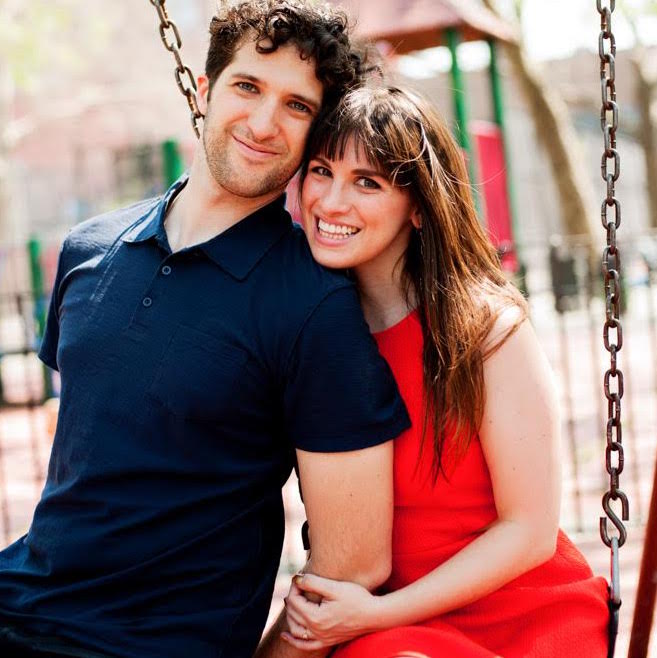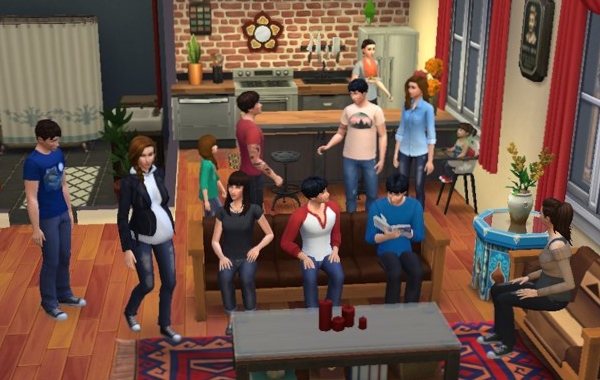The pregnancy test was negative again. I peed on another one just to make sure. Then I poured myself at least two fingers of Balvenie, curled up on the kitchen floor, and cried.
At 34, I was failing at life: overeducated and unemployed after eight years of graduate school and teaching. A paltry publishing footprint. Miscarriage after miscarriage and the thought of fertility treatments looming. Depression and anxiety kept at bay with pills, weekly therapy, and half-hearted yoga practice. It was normal for my husband to come home from work every day and find me laying on the couch in dog-hair covered sweats, CNN droning in the background.
Videos by VICE
“Trish, maybe you could put just a bit more effort into finding a job?” he would gently suggest.
Summer continued. I woke up later and later. My mornings became afternoons. My afternoons became exercises in staring at my laptop as if it would spontaneously offer me a job or answers to cure the existential dread.
Instead, it offered me The Sims 4: City Living.
“You only play The Sims when you’re on the verge of a nervous breakdown,” my husband said slowly when I told him a new expansion pack for the popular life simulation video game had come out last year.
“Nah, babe! Everything’s great!”

That night, I downloaded The Sims 4: City Living and stayed up until 3AM, launching my female Sim’s career as a writer, decorating her chic apartment with hanging plants and Persian rugs, and—most importantly—getting her pregnant.
In San Myshuno, the Sims version of an urban metropolis, a prettier version of me effortlessly scooted around her carefully cultivated world. She typed on a sleek computer, writing short stories, non-fiction tomes, and poetry collections with a single click on the hallway mailbox, which lets you publish directly to the world. She became an art critic in a few hours.
Not just a professional success, my excruciatingly fertile Sim got pregnant on the first try and had twin boys. Nicholas and Nathaniel were both geniuses and inquisitive about the world around them. They slept in race car beds and had a toy dollhouse so they wouldn’t fall prey to toxic gender stereotypes.
I could have just stopped at this one family, but I didn’t. I made another family. And then another. And many more. I peopled the entire virtual landscape.
In The Sims: 4, achieving pregnancy and coming to term is easy. All a Sim needs to do is find a partner, accumulate enough friendly and romantic feelings in the partnership, and then click “Try For Baby.” Afterwards, the Sim can pee on a pregnancy test to find out if they are “eating for two.” There are even patches and cheat codes for influencing sex and producing multiple babies: A Sim should eat strawberries and listen to pop music if they want a girl; carrots and alternative music for a boy. There are no miscarriages, no blood tests, no trophons, and no horrible surprises.
Soon, my San Myshuno teemed with lookalikes, all with similar personalities, careers and families: a creative wife, a logical husband, a child or two who embodied both parents and also wore adorable clothing and decorated their bedrooms with geodes and posters of horror movie heroes and female soccer players.
What happens when the simulacrum outshines the original?
I made sure my Sims always had the latest home upgrades, that their bladders were empty, and their refrigerators stocked with pomegranates. They all went to the Spice Festival, San Myshuno’s version of a street fair, and ran into and blurred into each other, the world populated with little copies.
A simulacrum is a poor substitute or imitation, a counterfeit image of the real. But what happens when the simulacrum outshines the original? My Sims were all thriving, succeeding, making money, having babies, being adventurous with their color palettes, and taking showers when green smell clouds blossomed around them. Meanwhile, I sunk into listlessness and hopelessness, started skimping on personal hygiene, and nurtured an angry grudge against both the fertile and gainfully employed.
I was on my eleventh identical Sim family when it became apparent this detour into alternative reality was actually making my depression worse. I was cranky and tired, my eyes hurt, and I regularly picked fights with friends. I even sent my husband screenshots of his Sim caressing my Sim’s baby bump. Later, he told me he teared up at work after seeing the screenshot, that he felt I was torturing him.
Escapism can be healthy and healing; it’s refreshing to vacate our consciousness and temporarily retreat into another reality, particularly when life gets stressful. But sometimes escapism, especially escaping into alternative virtual worlds, contributes to the problem.
By replaying my fantasy life over and over again—get the dream job, get pregnant—I was avoiding taking the necessary but boring and potentially painful proactive steps towards real-life employment and pregnancy. I was angry that my career was in a slump. I was traumatized by three miscarriages and scared of future reproductive problems. By rejecting the possibility of failure or the unknown, I was protecting myself.
We’ve all heard the gruesome trope of the serious gamer who refuses to take bathroom breaks. I’ve witnessed my husband and his friends spend hours playing Magic: The Gathering together online. And when Dragon Age: Inquisition dropped, I definitely set aside chunks of time to secure the Tongue of Serpents dagger and fight harlequin assassins.
But completely ignoring your life in favor of a fake one? That seemed more pathological.

I began reading stories of caregivers neglecting their children to see the worst case scenarios. The first documented fatality from video game addiction occurred in 2009 when a South Korean couple allowed their three-month-old baby to die from malnutrition as they cared for a virtual baby in the game Prius. In 2014, a couple from Anaheim, California neglected two young girls in their care so they could play World of Warcraft. According to the Los Angeles Times, “investigators found kitchen appliances ‘covered in mold and cobwebs,’ stacks of trash, debris, mold, and feces throughout the home, a pile of used condoms under a stuffed teddy bear, and inoperable toilets.”
I decided to take a break from playing The Sims. I started applying for jobs. I began my first round of Clomid, a drug meant to induce ovulation. I woke up every morning to have my blood drawn and my uterus inspected for maturing eggs. The day before my first intrauterine insemination, my husband and I had the usual gang over to watch Game of Thrones. Everyone knew about our appointment and wished us good luck.
“Guys, can you indulge me in one thing?” I asked tentatively, taking a box of sad-looking strawberries out of the fridge. “I know it’s stupid, but in The Sims, you have a higher chance of getting a girl if you eat strawberries and listen to pop music. Will you join me in eating some strawberries and dancing to Britney Spears?”
My friends each grabbed a strawberry and started shimmying around like we were performing a weird fertility ritual. I guess we were. But who cares? It was real.
Get six of our favorite Motherboard stories every day by signing up for our newsletter.




